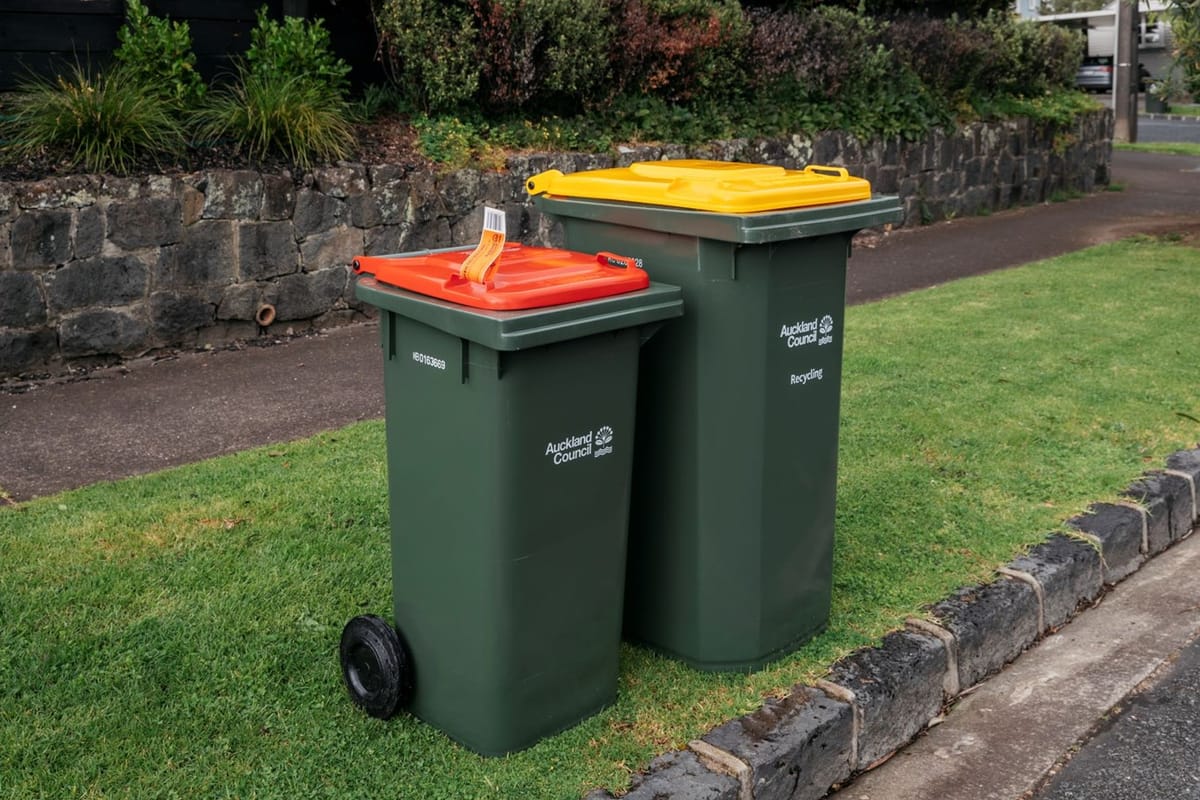Bin inspections have been reintroduced across Southland to help combat ongoing contamination rates of recycled material being redirected from landfill.
At the first WasteNet meeting for the year, director Fiona Walker addressed the committee and said Southland was among the highest rates in New Zealand - currently 19-20%.
In comparison, Christchurch’s contamination rates of recycling was only 5 to 10%, but she was optimistic restarting the bin inspections would bring their rates down.
During the 2023/24 year, 5494 tonnes of product was collected via the kerbside recycling service and the public drop-off facilities.
Of this, 17% was contaminated, resulting in 944 tonnes of product being redirected to the landfill.
Historically, WasteNet staff undertook periodic bin inspections across Southland, with this occurring between 2012 – 2016.
Fiona said in her report it was understood that this programme was ceased due to resourcing and changes in staffing.
“Since 2016, focus has been primarily on education, with no regular form of inspection or enforcement. Monitoring data collected indicates that the current approach of solely focusing on education is not effective in driving behaviour change and improving kerbside contamination rates.”
She said staff had started leave notes on bins for some people that were leaving lids on bottles in particular.
Meanwhile, the regional Waste Management and Minimisation Plan programme that was planned for adoption at the end of July, was now awaiting new direction from the Government.
Following the past Government’s strategic plan, released in March 2023, only one of five key actions had been implemented that was the standardisation of the materials collected in household recycling.
In late December 2024, the Government announced that it would not progress the remaining four proposed actions.
Chair Keith Hovell said preparing a draft with the group’s thoughts and considerations for the incoming waste committee was a good idea.
Cr Ian Pottinger noted his frustration of having sat on the committee for 15 years and said it felt like “groundhog day,” going through all the changes again with a new Government.
WasteNet is currently operating under the Joint Waste Management and Minimisation Plan (WMMP) 2020-2026.
Southland’s Waste Minimisation and Management Plan sets a target that by July 1, 2026 the region will have maintained a materials discarded figure of 650kg per person, comprising 40% diverted materials.
The rate currently breached the target by 112 kgs. There has however been a notable reduction in waste volumes generated across the region in recent periods when compared to historic averages, both kerbside volumes and that generated by authorised users.
“Monthly trends have continued to generally follow historic seasonal patterns. The absence of year-to-year change for this KPI may be attributed to economic conditions which have resulted in reduced consumer expenditure and consumption, and thus waste generation.”


